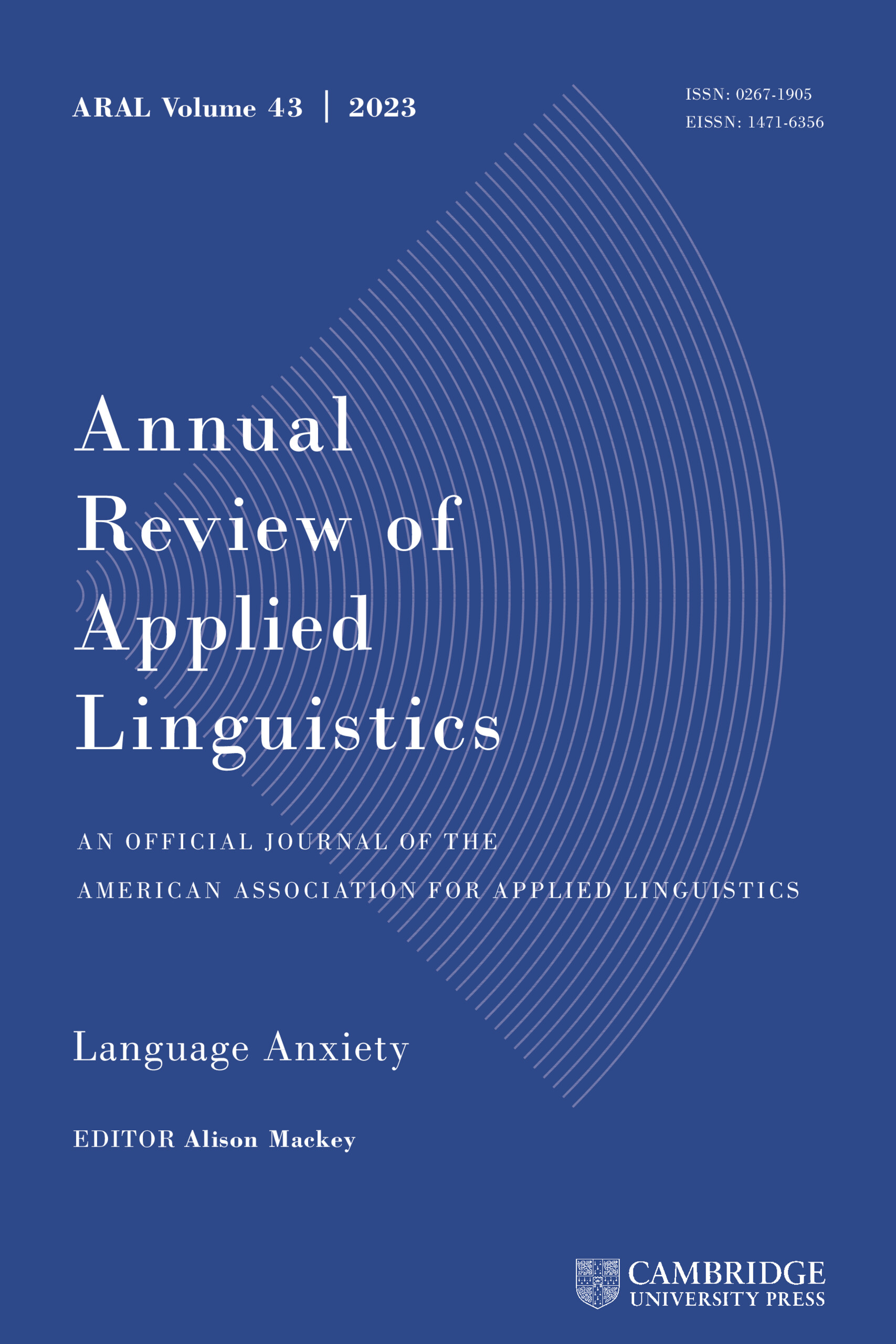No CrossRef data available.
Article contents
Extract
This issue is my first edited volume of the Annual Review of Applied Linguistics (ARAL). Each year ARAL focuses on a specific theme, but about every five years it covers a range of mostly unrelated topics in a survey issue. Volume 30 was scheduled to be a survey issue, and after some discussion with the editorial directors, I decided to keep this tradition. Thus, I had the daunting task of choosing four broad topics, and then within each broad topic, a few narrow topics on which to invite scholars to write review articles. I chose a wide range of areas as a statement that I see the field of applied linguistics as not only being broad but as also representing a range of perspectives on theory and research methods. For example, I have included sections both on language socialization and on linguistic theory (mostly formal) in second language acquisition. I felt that these two areas were quite far apart with regard to the view that researchers in those areas held, but in my mind, both social and cognitive approaches to language learning and use are valid and simply seek to answer different questions. In the section on research methods, the articles focus on using both cognitive and social approaches, as well as quantitative and qualitative methods. The articles on heritage language learning focus on acquisition, policy, pedagogy, and sociocultural issues.
- Type
- Introduction
- Information
- Copyright
- Copyright © Cambridge University Press 2010




